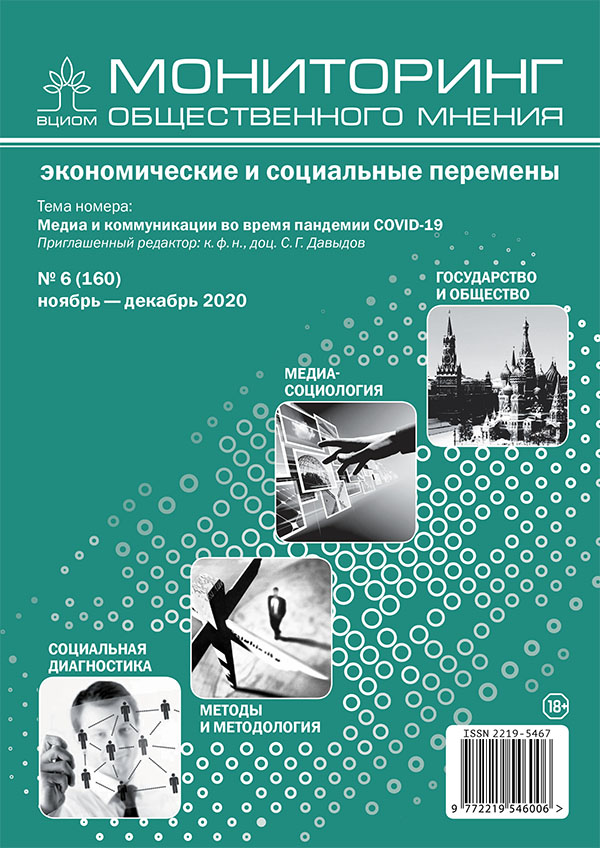Волновая (де)проблематизация: освещение пандемии коронавируса в России на федеральном телеканале
DOI:
https://doi.org/10.14515/monitoring.2020.6.1754Ключевые слова:
коронавирус, COVID-19, конструирование проблем, депроблематизация, телевидениеАннотация
В статье мы анализируем освещение пандемии коронавируса на «Первом канале» за период с 1 февраля 2020 г. по 30 июля 2020 г. На основе анализа более 3 тысяч новостей мы разделяем дискуссию на три этапа, в рамках которых последовательно осуществлялись стратегии по смягчению ситуации, по ее проблематизации и, наконец, повторной депроблематизации. Для каждого этапа мы выделяем и описываем основные метафоры, смысловые акценты и способы аргументации, которые позволяли реализовать соответствующую стратегию. Для объяснения динамики освещения коронавируса предлагаем концепцию волновой (де)проблематизации, которая позволяет интерпретировать и анализировать существенные изменения тональности освещения конкретного вопроса в одном и том же СМИ за короткий период времени. Сопоставляя динамику дискуссии с опросами общественного мнения, проводимыми Фондом «Общественное мнение», мы делаем вывод, что характер освещения проблемы коронавируса на «Первом канале» мог существенно повлиять на оценки ситуации населением. Однако волновая депроблематизация в качестве одного из последствий имеет рост недоверия к официальной информации о коронавирусе, что может затруднить повторную проблематизацию ситуации в случае ухудшения эпидемиологической ситуации.
Благодарность. Исследование осуществлено в рамках Программы фундаментальных исследований НИУ ВШЭ в 2020 г.
Загрузки
Опубликован
Как цитировать
Выпуск
Раздел
Лицензия
Copyright (c) 2020 Мониторинг общественного мнения: экономические и социальные перемены

Это произведение доступно по лицензии Creative Commons «Attribution-NonCommercial-ShareAlike» («Атрибуция — Некоммерческое использование — На тех же условиях») 4.0 Всемирная.






